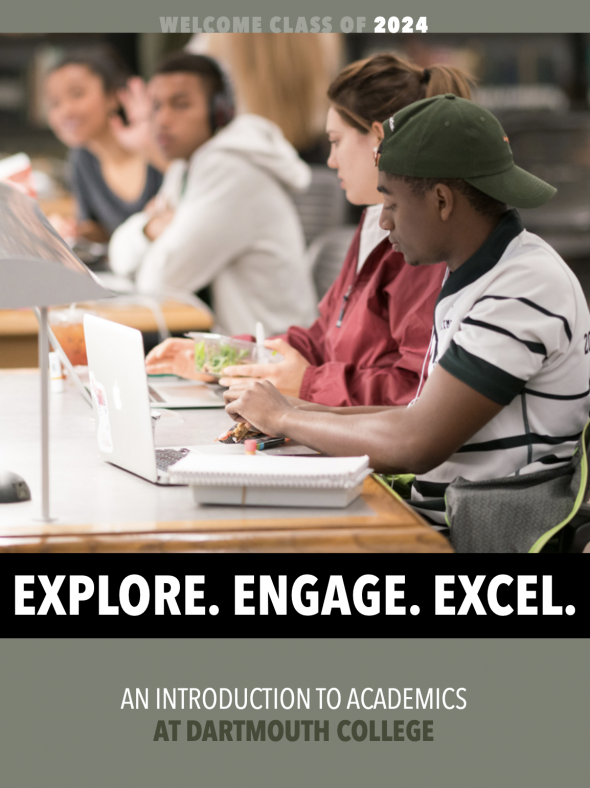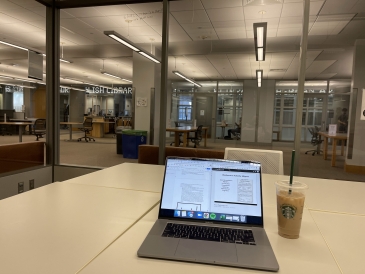
How I Approach Course Selection
Dartmouth's famous, one-of-a-kind "D-Plan" allows students to fully take the reins of their own academic journeys. You can double major, double minor, modify a major, and more. Course selection may seem intimidating, but Dartmouth provides an excellent array of resources—ranging from a faculty advisor to the Undergraduate Deans Office—to encourage academic exploration.
For incoming first-years ('25s woohoo!), in early August your deans should send you a super helpful Explore Engage Excel brochure outlining the College's first-year writing, distributive, first-year seminar, language, and world culture requirements. The PDF also includes a comprehensive description of each course.

Some of my best tips for course selections are...
- Go beyond the class title. Do your research. Read the syllabus and talk to upperclassmen who have taken the course before for guidance… Is it super reading heavy? A lot of problem sets? Is the prof a huge fan of multiple choice tests and you know that's not your cup of tea? Strive to take a balance of classes — and I don't just mean subject-wise, I mean ones that include a variety of assignments as well.
- Some high school AP/IB/British A-Level exam scores will place you out of certain major or language requirements. For example, a 4 or 5 on AP Calculus AB will give you a Math 3 credit, so you would become exempt from a prerequisite to many majors including economics, quantitative social sciences, computer science and more, placing you into a higher math class.
- During the fall of your freshman year at Dartmouth, limit yourself to three classes so you have time to acclimate to the college environment of living in Hanover. There's no need to overload yourself with too much academically while juggling the transition into college life.
- Last but not least, there is no such thing as a "wrong" class! During your four years, you will stumble upon hidden gems, perhaps interesting enough to persuade you to declare a major or minor in a field completely different from what you submitted on your application to Dartmouth. For me personally, after taking an Introduction to International Development class for the first time ever in the fall, I became interested in taking more classes within the departments of INTS International Studies/GEOG Geography. I'm now halfway through with the International Studies minor (having taken INTS 16 Introduction to International Development, INTS 18 Global Health & Society, and GOV 5 International Politics) and excited to learn more about topics like climate change, international health crises, global inequality, terrorism and violence in the INTS/GEOG classes to come. The liberal arts is designed to offer you a broad understanding of the world with mastery in at least one field, so don't worry about mapping out every little detail.
Next term, a few courses have caught my eye, including ENVS 17 Marine Policy, ECON 39 International Trade, and ENVS 3 Environment and Society. I'm excited to update you of my final course selection for 21F once that rolls around, but until now, hope you all have wonderful summers!

















